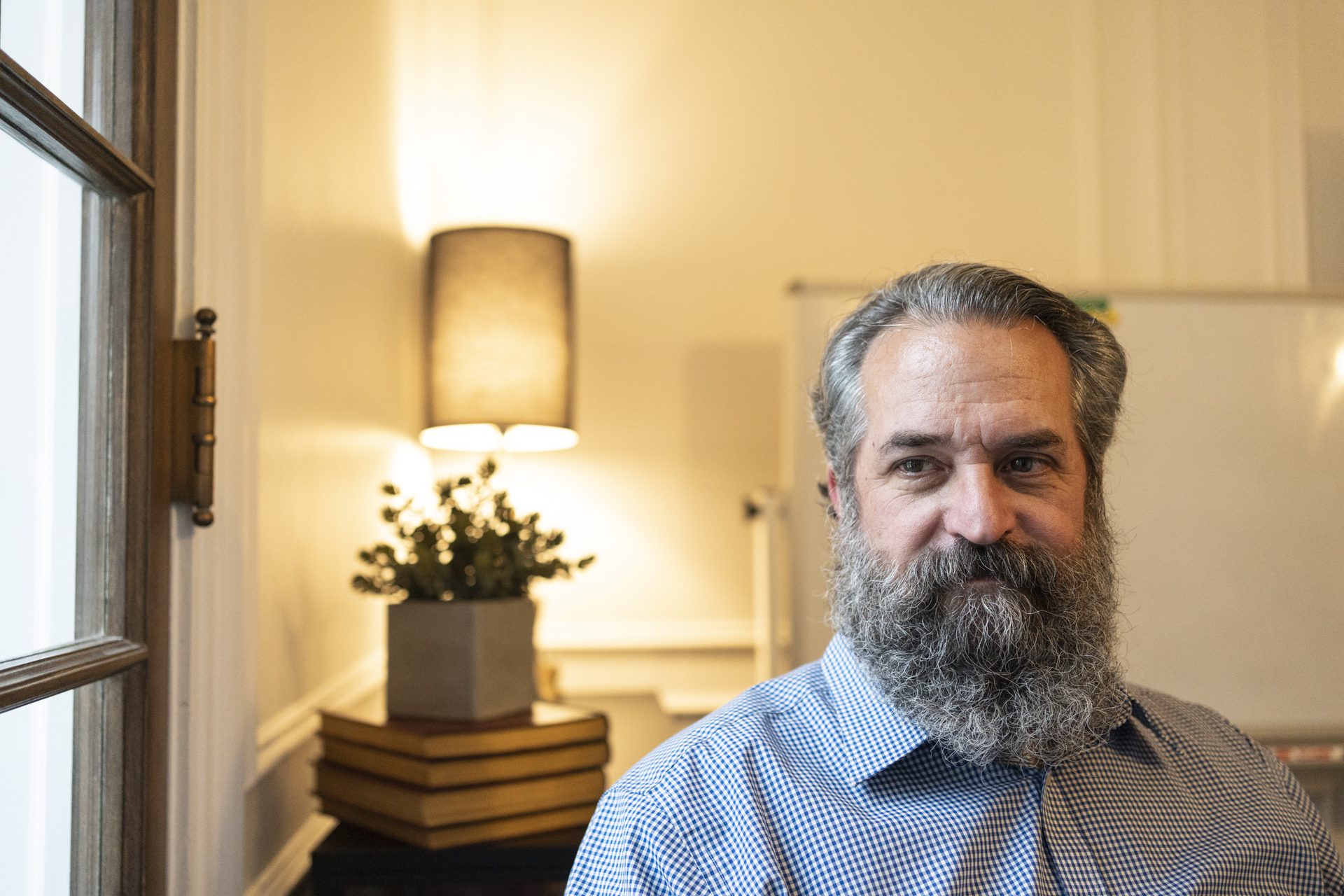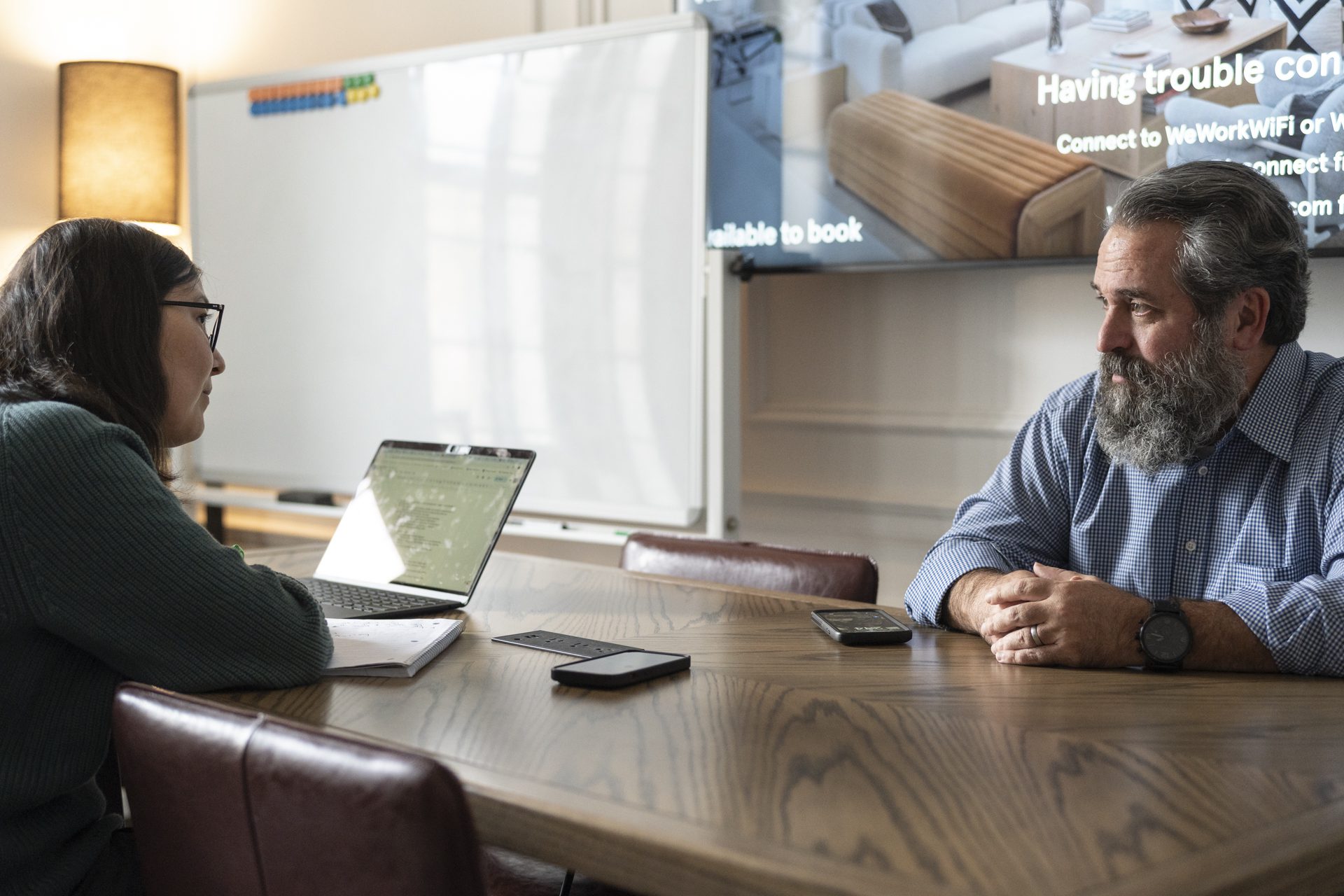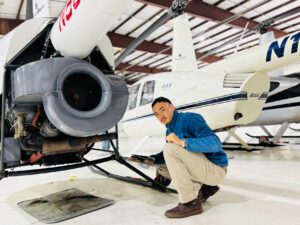 Max Herman/Borderless Magazine
Max Herman/Borderless MagazineThroughout his two decades of service, Kevin Burke was deployed several times to Afghanistan, Iraq and Africa. The experience shaped his perspective on Afghan people fighting for freedom against the Taliban.
Kevin Burke grew up in a military family in Chicago. After graduating college, he followed in his father and great-grandfather’s footsteps and joined the United States Army despite some family objections.
Throughout his 21 years of service, he was deployed several times to Afghanistan, Iraq and Africa. The experience shaped his perspective on Afghan people fighting for freedom against the Taliban.
Burke now works as a scoutmaster for his 12-year-old son’s Boy Scout troop, teaching resilience and integrity to those who might one day serve. “I can work on this generation coming through and give them that base character to do better, to be better,” he said. Beyond his work with youth, Burke also serves as the Education, Outreach, and Community Engagement Manager at Illinois Joining Force (IJF), helping service members, veterans and their families navigate the “sea of goodwill.”
Want to receive stories like this in your inbox every week?
Sign up for our free newsletter.

His story reminds me of my own.
My father joined the Afghan National Army fourteen years ago and served for over a decade, a decision rooted in identity and necessity. Growing up, each announcement from the mosque that a fallen soldier would be buried sent ripples of fear through my family. It reminded us of the fragile line between survival and loss in the ongoing conflict. Almost everyone we knew in the neighborhood and among friends lost a member of their dearest ones in the ongoing conflict with the Taliban. Yet, for many Afghan families, including mine, joining the army was one of the main ways to support a family.
This conversation reflects duty and resilience, as told by Burke — mirrored in my own experiences — and reveals the intertwined fates of those who served and those who were served by the ever-shifting tide of Afghanistan’s recent past.
This conversation has been edited for length and clarity.
You mentioned being a third-generation veteran. What motivated you to follow in those footsteps?
Burke: I believed in it. It was bigger than just a job; it was a lifestyle. I grew up in it. But when I decided to join, my family actually tried to talk me out of it. My mom started crying when I got my ROTC scholarship, saying, ‘Please don’t do this. You don’t have to do this life.’ The military felt like home to me. They’re my tribe, my family outside of my family.
Hosseini: Army service is often a matter of family and identity in Afghanistan, yet economic necessity is a powerful driver, too. When my dad joined the Afghan National Army, my family was gripped with worry, knowing that nearly everyone in our neighborhood had lost a loved one to the conflict with the Taliban. I can never forget how worried we all were. For many Afghan families, including mine, joining the army was one of the main ways to support a family.
You were deployed many times to Iraq and Afghanistan—what drew you back time and again?
Burke: In my 21-year career, I racked up a good 22 moves. You build these connections, and it’s like a small family for a period of time. I believed in the mission to support and defend the Constitution. And something about being there, being outside, doing what I loved, kept me coming back.
I was deployed to Iraq in 2003. We deployed right before Christmas and were involved in the invasion. I came back shortly after President George W. Bush declared victory, but I anticipated there would be follow-on missions. Except, I got diverted to Afghanistan.
Hosseini: My family returned to Afghanistan in 2004. I had never lived under Taliban rule and didn’t intend to in 2021 after the collapse of the Afghan government. For safety, my family fled to neighboring Iran when I was three months old in 1994. We left because of the Taliban’s persecution of the Haraza ethnic group and the Shia population and its abhorrent treatment of women. Iran’s introduction of a measure that drove the cost of education out of reach for many refugees pushed my family back to Afghanistan in 2004. Thanks to the U.S.-led overthrow of the Taliban government — and new international funding for girls’ education — my sibling and I were free to learn in our homeland.
Read More of Our Coverage
Afghanistan is often misunderstood in the West. What were your initial impressions, and how did they evolve?
Burke: Tough is the only word that comes to mind. They’re incredibly tough. I was always blown away by everyone, especially people in their 90s fighting against the Soviet soldiers. I don’t know how they made it that far in their life.
The Afghan older men would tell me: ‘When Allah created the world, he had some extra left on his fingers, and he just flicked it. That’s Afghanistan.’ That’s the joke the elders made in Afghanistan, which makes me chuckle every time I remember it. If I’d said that, I know, without a doubt, they would try to kill me on the spot. There’s this love-hate relationship they have with the land, but their connection is so deep, rooted in centuries of history.
What I didn’t ever understand, though, is the treatment of women. In some places, donkeys were treated better. (Burke explained that the running joke in many of the villages on the eastern side of Afghanistan was to point to the graveyards whenever his team asked the locals where they would be taking their women when they fell sick.) If I had any regret about Afghanistan or any, like, post-traumatic stuff, it is that we didn’t do anything about that.

Hosseini: Growing up as a refugee, mainly the news shaped my impression of Afghanistan. I remember scenes of women forced into child marriages, lashed and banned from getting an education, the unsafe provinces and the poverty level. It was only after returning to Afghanistan for school when I was 10, in 2004, that I began to understand the beauty and complexity of the country beyond the headlines. Despite the underdeveloped situation and tough life, I love my childhood memories, like shooting marbles with the neighborhood boys, competing with my friends to solve math problems and English homework, and always being excited about school trips. Growing up in one of the conservative provinces in Afghanistan, my family always encouraged me to push the boundaries created by society, and they are the reason I am the better version of myself today.
Given the situation’s complexity, what did it take to build trust and gather intelligence in Afghanistan?
Burke: My job working in special operations was primarily to be able to help detect bad guys. I was trained to navigate Afghan culture and understand the spectrum of motivations behind the insurgency. You don’t stay too long. The longer you stay, the more it might turn against you. It was my job to find the elder, speak with respect, and explain, ‘I don’t want to be in your village. But if we can get this person, we’ll be gone, and whatever is broken, we’ll fix.’ That approach often helped avoid violence.
As an outsider, I had to learn and process things very quickly. There’s always more to the story than that. Being a Westerner — they’re turning in their enemies. It could have been an enemy of their family; it could have been an enemy of their tribe.
You played a role in the mission to rescue Marcus Luttrell, a well-known SEAL Team member. Can you walk us through that experience?
Burke: Marcus, along with his team, were on a mission to either capture or kill a target. They lost communications. They got compromised very early, and their escape and invasion plan got messed up because of how they were attacked. Finally, after nearly two weeks, Gulab, an Afghan local, found and helped Marcus hide in his village and delivered a note to my unit that proved he was alive. Gulab helped Marcus escape. The Taliban was very upset that he gave away Marcus and threatened to kill everybody in the village. I felt responsible for him and his village. I pushed to get resources to them and supplies to at least give them a little security. That guy sacrificed everything and everyone in his family to help one of our guys. We owe him more than you’ll ever be able to pay.
How did you feel about the U.S. withdrawal from Afghanistan in 2021, particularly given the fate of allies like Gulab?
Burke: It hurts. The exit could have been managed better. During the Obama era, we had a structured process to assess if Afghan provinces were ready to handle security. Some areas were doing well; others weren’t. But the 2020 Doha agreement bypassed that system.
I signed up to help, not to hurt. And we’re hurting. We hurt a lot. Unintended or not, it doesn’t matter. We fell short of our own goal, and we left. It was frustrating that years of work and sacrifices seemed wasted as the U.S. left abruptly.
Hosseini: The abruptness of the withdrawal was devastating. As soon as the Taliban took power, they went door-to-door, searching for people who had cooperated with the U.S. and were part of the army, torturing and killing many. The rapid departure left countless Afghan families exposed to retribution, particularly women and the younger generation who had invested years in building a bright future. When the day came, and the U.S. left, the Afghan President fled, and the Taliban swiftly took Kabul. It was chaos. Many people we knew, including one of my father’s comrades, were killed, and women’s dreams were shattered.
From an Afghan perspective, the 20 years of progress in education, women’s rights and economic stability were not just symbols but tangible gains. Much of that was lost overnight with the U.S. departure. Living a simple life became an ongoing nightmare for almost everyone, particularly for women and the younger generation.
Fatema Hosseini is a Roy W. Howard Investigative Reporting fellow covering immigrant communities for Borderless Magazine. Send her an email at fatema@borderlessmag.org.

Bring power to immigrant voices!
Our work is made possible thanks to donations from people like you. Support high-quality reporting by making a tax-deductible donation today.

